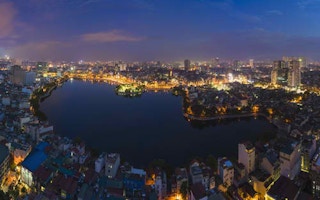Prime Minister Nguyen Tan Dung has approved an efficient-energy project aimed at reducing the amount of carbon dioxide emitted by trade centres and apartment complexes in major cities.
The project aims to reduce CO2 emissions by increasing energy efficiency in commercial buildings and apartment complexes in Ha Noi and HCM City.
Part of the project is sponsored by the UNDP through the ODA fund from the Global Environmental Facility.
The project will take four years to complete, with total capital of more than US$22.4 million. Of this amount, nearly $3.2 million is from the UNDP and more than $19.2 million is from the counterparts and co-sponsoring funds of the Vietnamese organisations involved.
When the project is complete, direct emissions of CO2 will be reduced by more than 37 tonnes. A total reduction of nearly 240 tonnes of CO2 emissions will be realised over the course of the project.
In terms of indirect emissions reduction, the total amount of CO2 emitted 10 years after the project is complete will have fallen by 6 per cent.
At the COP21 conference for climate change in Paris last year, the prime minister said Viet Nam would reduce emissions by 8 per cent using the common development scenarios by 2030.
The amount might increase to 25 per cent if the country receives adequate support from the international community, he said.
The integrated building management system is one of the solutions for reducing CO2 emissions and has been deployed by some buildings and skyscrapers in Viet Nam.
The system ensures that electric facilities in the building will only be used when necessary, preventing the wastage of energy.
Statistics from the environmental monitoring centre of HCM City in the first half of 2015 showed that the level of CO2 emissions in the city had reached an alarming figure.










